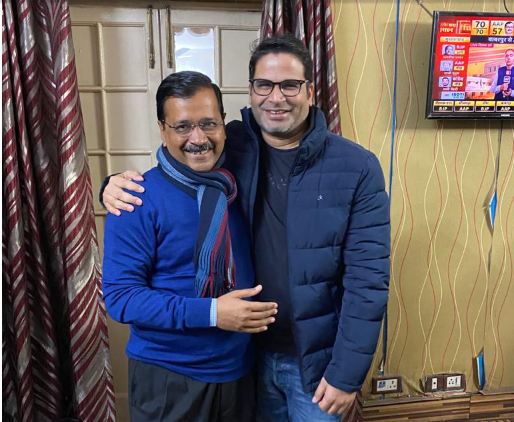Why Delhi rejected Modi-Shah but accepted Kejriwal
By Jinka Nagaraju
Hyderabad: Delhi results have once again revealed the fault lines in Modi-Shah model of BJP organization. The prestigious election has demonstrated like many other states where BJP bit dust in the recent past that the saffron party needs something more than the national government, national agenda, and national faces. Though India is a union of states, the states love to assert their own identity in many aspects of social and political life.
The state election is one area where people mostly love to see the "local" in their leadership, which BJP could not present in the Delhi election now, and in Maharashtra, Jharkhand etc earlier. The people prefer to identify themselves more with local leadership and local agenda. Modi-Shah duo appears to have given short shrift to this time tested tenet of Indian politics while facing the Delhi elections.
The conviction that Modi-Shah leadership can jointly win any election in any corner of India with their national agenda has been proven a myth, now in Delhi as well. The inference from the Delhi election is that the party needs stronger local leadership to face the election in the states which tend to behave like independent regions during poll times. The BJP can no longer rely on Modi-Shah alone to win the regional elections. People would be a bit hesitant to own up Modi and Shah as their local leaders despite their pan-India image.
However, leaders like Shiela Dikshit and Kejriwal feel comfortable in the company of locals. With their local connections, local presence and by raising local issues they can easily convince the people about their commitment to addressing local’s pressing issues like water, electricity, health, education, etc. The element of ‘ the local’ generates a kind of affinity between the leader and the people. Can anybody expect such mundane assurances from a leader as tall as Modi or Shah?
It is surprising that BJP has not learned lessons from the elections it either lost or barely managed to win last year. BJP lost wherever it faced strong regional leadership, and it could scrape through where it had reasonably identifiable leadership.
Its presence is guaranteed in Maharashtra because of a few regional faces that could make their presence felt. The important lesson, which the BJP sadly failed to take note of, is its inability to strike roots in Southern states. In South India, all states have stronger regional parties led by personalities whose popularity runs across all castes and religions. BJp could not promote any regional leader in these states and of course, its national agenda is anathema to encourage strong regional leaders. This is the reason the BJP could not fill the space vacated by Congress in Andhra Pradesh and Telangana showing Modi and Shah as the face of local BJP.
The message of Delhi elections is clear: The party is in bad the need of strong regional leaders who can connect and translate the BJP national narrative into ‘the local'.
In the run-up to Delhi election, Kejriwal had always been down to earth while divisive, provocative politics were the staple of the BJP campaign. While Kejriwal talked of safer Delhi, adequate drinking water, quality education, and health care, BJP sought to counter this with communal rhetoric which the people did not need at the moment. Delhi voters rightly realised that Kejriwal alone could take care of their existential problems and chose to back him.
BJP, of course, can derive immense satisfaction from the fact that it has performed well compared to what it achieved in 2015.